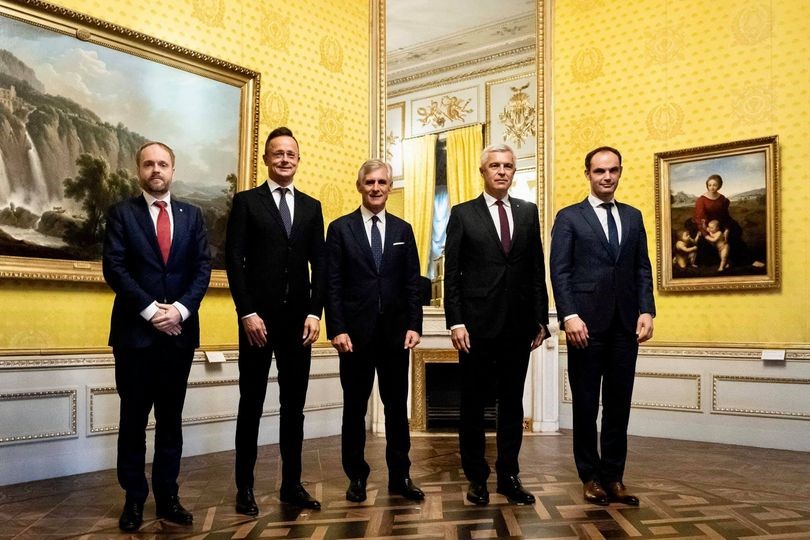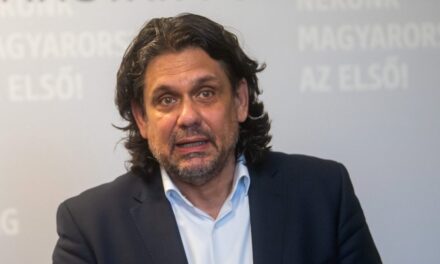Just like the Hungarian government, the Polish leadership is being attacked on the international stage because of its patriotic and successful policies that go against the "liberal mainstream", said Minister of Foreign Affairs and Trade Péter Szijjártó in Vienna on Friday. The head of ministry participated in the meeting of the so-called C5 format of Central European countries (Austria, Czech Republic, Hungary, Slovakia and Slovenia) at the level of foreign ministers.
At the press conference prior to the meeting, he emphasized that the states of the region have performed extremely well in recent months and were among the fastest-growing economies after the coronavirus crisis. In order to maintain growth, he believes it is essential to guarantee security in the future as well. In this regard , he emphasized that Europe is facing significant security challenges, as the number of illegal migration figures is increasing again. The withdrawal of international forces from Afghanistan contributed to this, as well as the fact that, in addition to the south and southeast, migrants are also coming to the European Union from the east this time. As long as mandatory resettlement quotas are on the agenda, even if only in a hidden way, or as long as border protection is not treated as a security issue, but as a humanitarian or human rights issue, and as long as irresponsible statements are made, migration pressure will be strong, Péter Szijjártó warned.
"We Central Europeans continue to protect ourselves, Europe and our borders, we help each other in this regard," he said, adding that this year, around 100,000 illegal immigrants have already arrived on the continent from the south. He underlined: Hungary is grateful to the other Visegrád states for their support for the protection of the borders, as well as to Austria for the continuous consultation.
In response to a journalist's question about the controversial decision of the Polish Constitutional Court rejecting the primacy of EU law, the minister emphasized that the reason for the attacks on the Warsaw government is its successful patriotic policy. He stated that the EU treaties define clear powers, and if an area is within the competence of the member states, then national law clearly takes precedence there. In addition, he believed that mutual respect was needed instead of "stigmatization".
Source: MTI













